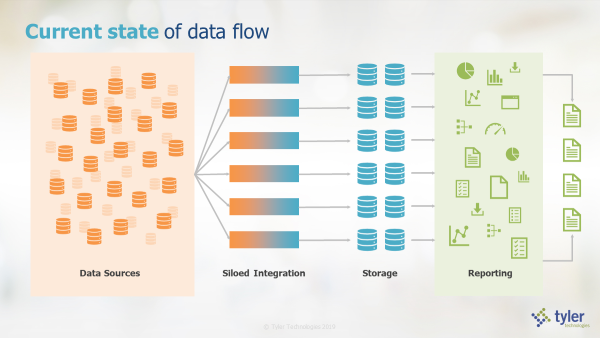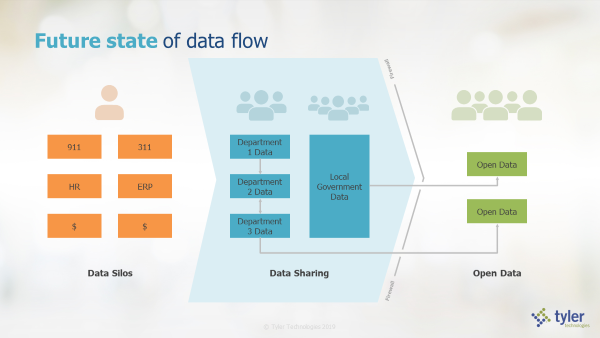CIOs Explore a Modern Platform Approach
October 07, 2019 by Meredith Trimble

“Unlike at other levels of government, local CIOs play a crucial role in the development and management of their communities’ infrastructure,” said Oliver Wise, Data Academy director, Tyler Technologies. Wise was present at the recent MIX CIO conference, where some of the most innovative CIOs and IT directors in the country joined together to respond to the growing demands and opportunities around government technology.
Along with many mission-critical priorities, local government CIOs are flooded with enormous amounts of data from new IoT technologies. There are significant challenges in how to make sense of this data as well as how to manage the security challenges it presents, especially considering increasing ransomware attacks. “City CIOs also recognize the importance of building a data culture in their organizations,” said Wise, “so that employees are empowered to derive insights from data and act upon them.”
To address these challenges requires leveraging API technology to move beyond data sharing from government-to-citizen, in a transparency vein, to sharing government-to-government. Wise addressed just how to do this in his talk, “Why Mission Critical Priorities Need a Modern Data Solution.”
A Modern Approach
Wise illustrated that with a modern platform approach to technology:
- Data can connect silos and eliminates frustrations; and
- Data can make us smarter through feedback loops for a more intelligent organization.
As open data becomes better, cheaper, and more sustainable, once-siloed information can be aggregated in easily accessible ways for all stakeholders, resulting in actionable insight. While the data itself doesn’t make us smarter, our ability to learn from it and adjust – to show agility – does result in smarter decisions and a more successful organization.


Data Governance
One of the greatest benefits of the modern platform approach is that it makes data governance easy. Technology on its own cannot create sustainable transformation in government. “Data governance is critical to addressing myriad data management challenges,” noted Wise. These challenges include security, privacy, data quality, metadata standards, and regulatory compliance.
In addition, Wise noted the importance of overcoming institutional inertia through the following leading practices, with accompanying government examples:
- Solve problems first and build capacity along the way
Virginia uses insights from a collaborative statewide data sharing agreement to combat the opioid epidemic with evidence-based responses.
- Empower employees
Little Rock, Arkansas, empowers employees by providing staff not just access to data but the skills to make sense of it.
- Understand that enterprise data sharing is fundamentally a leadership challenge
Leaders in Fulton County, Georgia, connected 15 siloed city governments to improve operational efficiencies through data sharing.
Learn more about creating a sustainable and scalable data program to break down silos and solve problems in Three Pillars of Data-Driven Government.